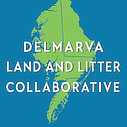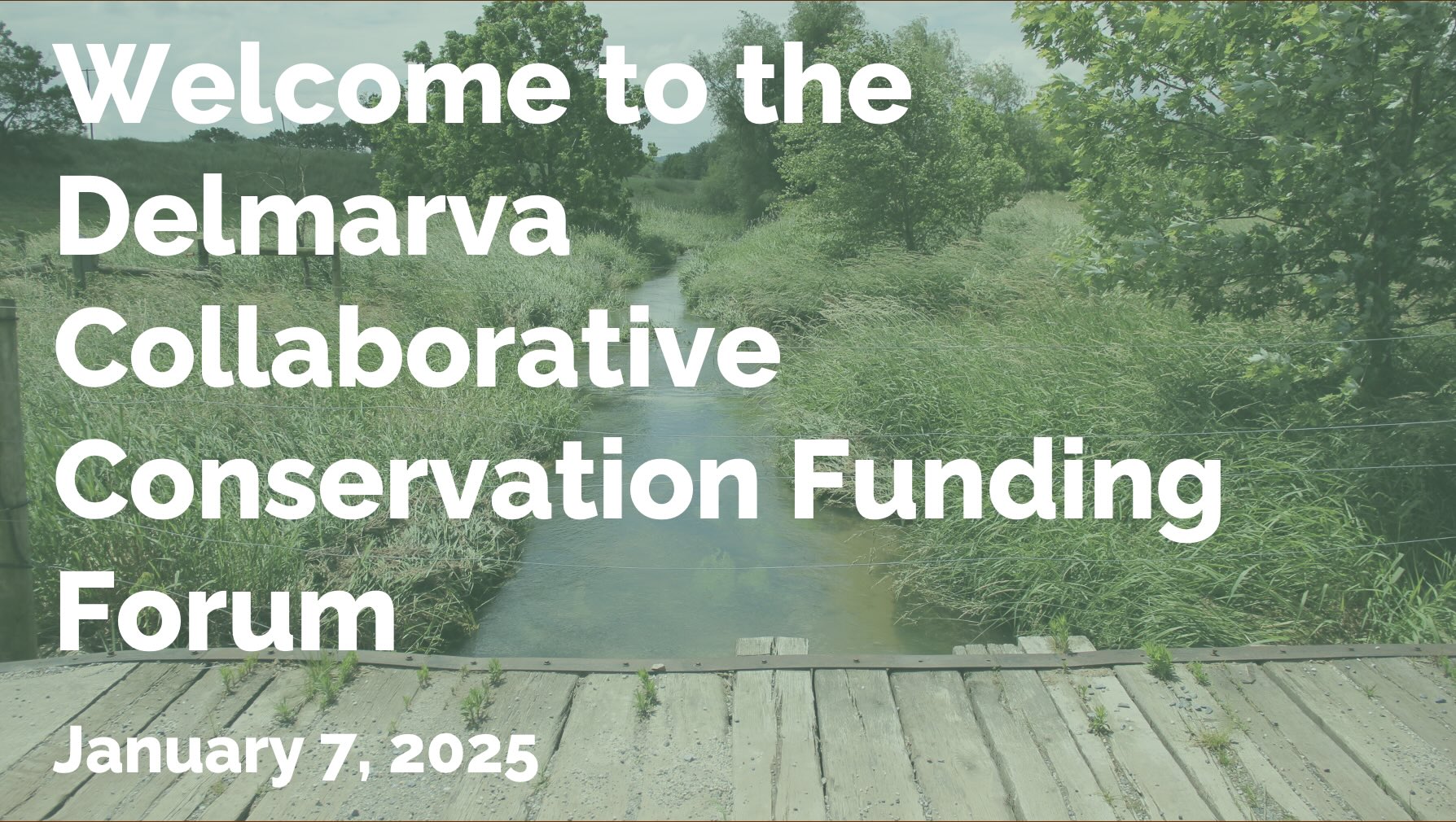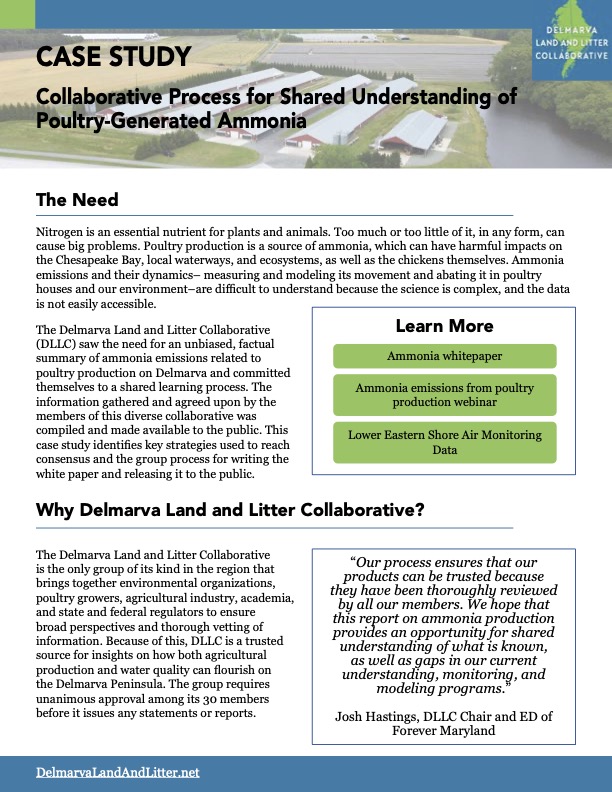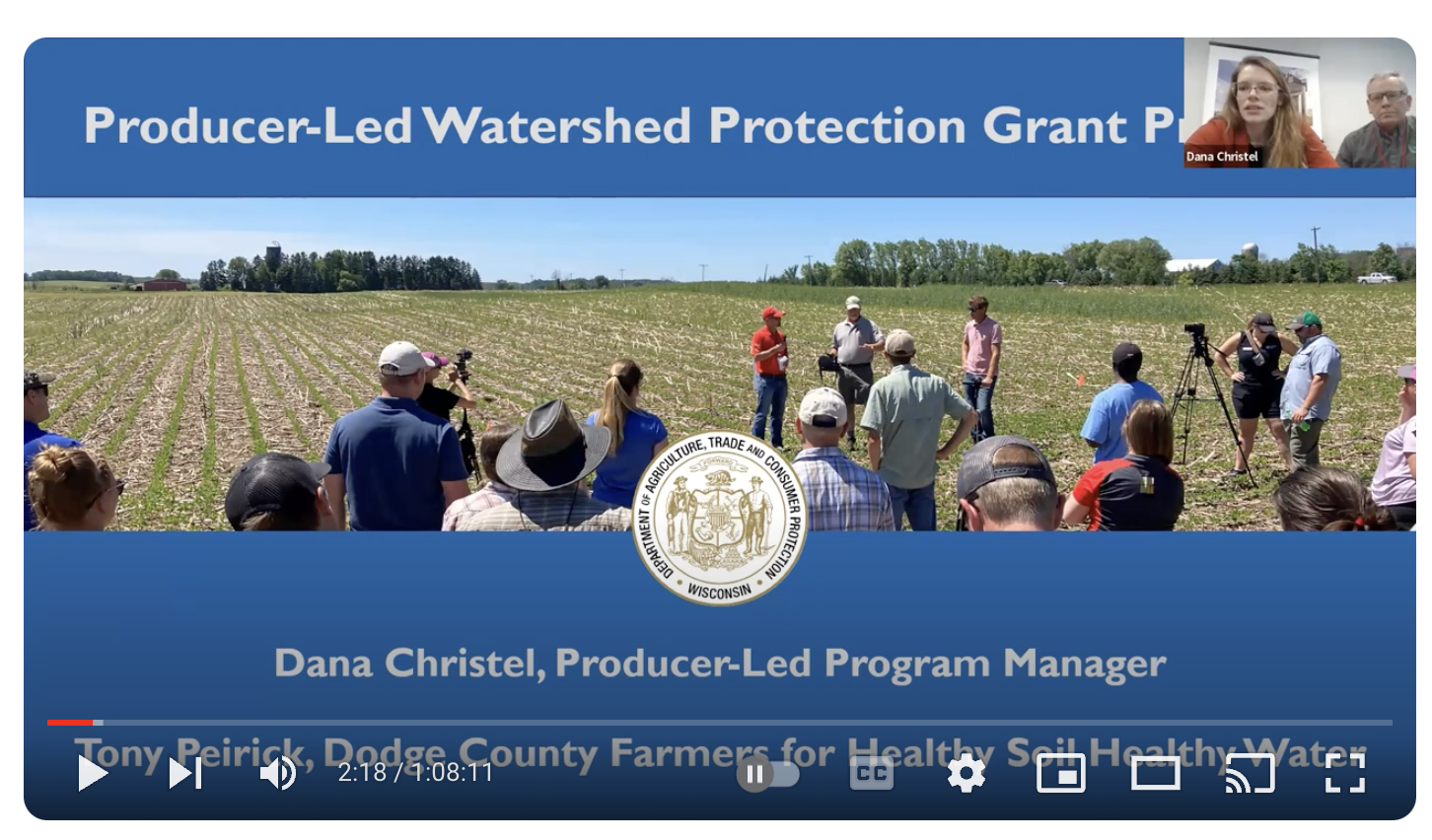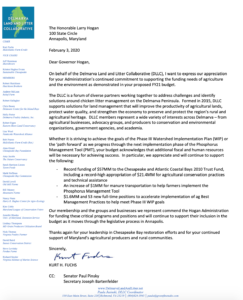Our Work
The greatest value DLLC offers is the collaborative work that is done to build trust and share knowledge among its members. Our members, in turn, bring a broader perspective to their organization’s work. Because of the consensus-building nature of DLLC, it takes time and commitment to develop materials, products and letters that everyone can agree to. The value of this to stakeholders is that you know a very diverse group of people have vetted and agreed upon the work that is released in DLLC’s name.
DLLC members come together in Workgroups to research issues, educate members and develop products to inform the public. Past Workgroups included Litter Transport, Mass Balance and State of the Delmarva Chicken Industry. Current workgroups are Innovative Solutions, Policy, and Ammonia Dynamics.
DLLC Farmer Engagement Summary on Targeted Watershed Restoration, 2025
The Delmarva Land and Litter Collaborative’s (DLLC) Whole Systems Approach Workgroup hosted a farmer engagement session on targeted watershed restoration on February 28, 2025 to explore opportunities toimprove water quality and habitat restoration. This is a summary of the session.
DLLC 2024 Year in Review
Look at our 2024 Year in Review to see the highlights of our work and what we have planned for 2025.
Delmarva Collaborative Conservation Funding Forum, January 2025
We held our 2nd Annual Delmarva Collaborative Conservation Funding Forum on January 7, 2025. Watch the recording to hear from regional funders on their upcoming opportunities and priorities. You will also hear several case studies from practitioners working on conservation projects around Delmarva.
Note: The Forum was held online this year due to inclement weather.
DLLC 2023 Year in Review
Take a look at our 2023 Year in Review to see the highlights of our work and what we have planned for 2024.
Case study: Collaborative Process for Shared Understanding of Poultry-Generated Ammonia
The members of DLLC spent two years conducting shared learning, engaging experts, and coming to agreement on the basic facts about poultry ammonia management and modeling. This was initially an internal endeavor but the members of DLLC collectively decided to document what they had learned and share it with others. This case study demonstrates the process a diverse group of stakeholders went through to come to some shared understanding of a complex issue.
DLLC Webinar on Rapid Stream Delisting
On December 8, 2023, DLLC hosted a webinar on how high-resolution data and outreach efforts are being used to target and restore agriculturally-impacted streams in Pennsylvania, and how the process could be replicated in other areas.
The full recording to this webinar is available here.
DLLC Webinar on Wisconsin’s Producer-Led Watershed Protection Grant Program
On November 15, 2023, DLLC hosted a webinar with leaders in Wisconsin’s Producer-Led Watershed Protection Grant Program to learn more about their work and outcomes in engaging farmers to adopt conservation practices. The full recording to this webinar is available here.
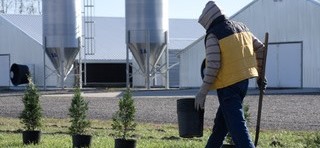
DLLC Submits Farm Bill Priorities to Congress
The U.S. Farm Bill is a package of legislation that is authorized approximately every five years that governs an array of agricultural and associated environmental programs. As Congressional officials discuss the next authorization of the Farm Bill, DLLC members submitted their list of shared priorities for inclusion. See the letter for this list and more information on DLLC.
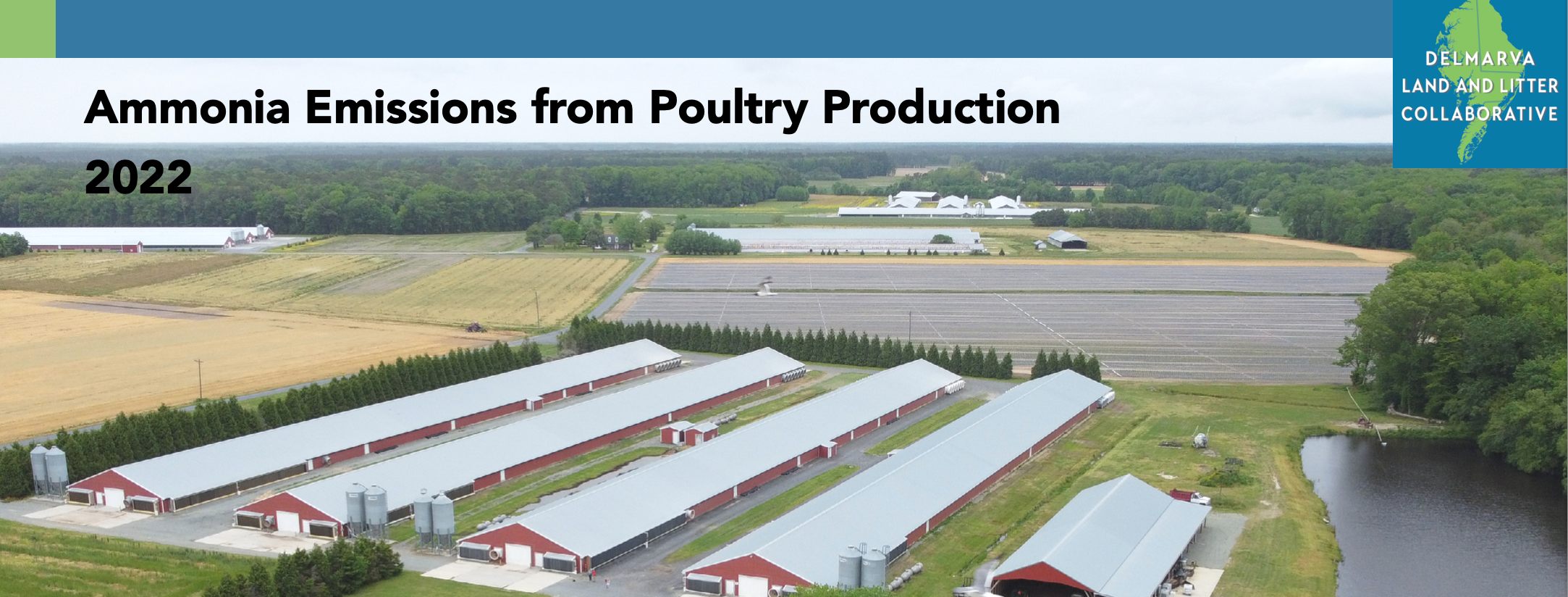
Ammonia Emissions from Poultry Production Whitepaper
During the past two years, DLLC members prioritized learning more about ammonia emissions resulting from poultry production. The paper provides an overview of what we learned from experts in academia, modeling, regulatory, and non-profit organizations. The attached video of the webinar provides an overview of the information in the paper, presented by Dr. Richard Snyder, Director of the VIMS Eastern Shore Laboaratory. Dr. Snyder chaired the DLLC workgroup that reviewed the current science, engaged with experts and wrote the white paper.
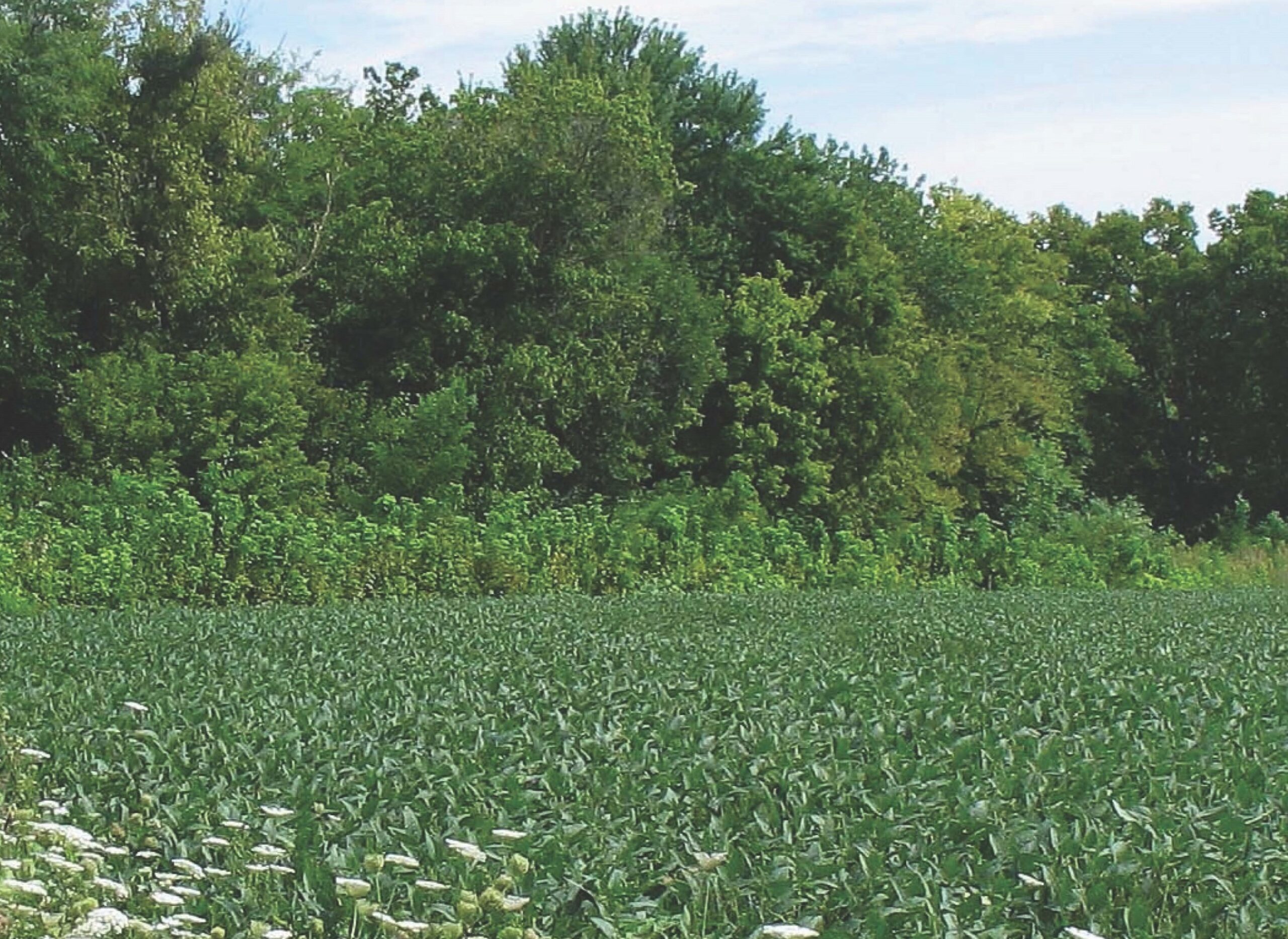
Delmarva Agricultural Conservation Funding Forum
DLLC hosted a webinar on February 28, 2022 to highlight the various funding streams available for agricultural conservation work across Delmarva. The forum helped Delmarva partners understand the range of funding programs available to implement conservation priorities.
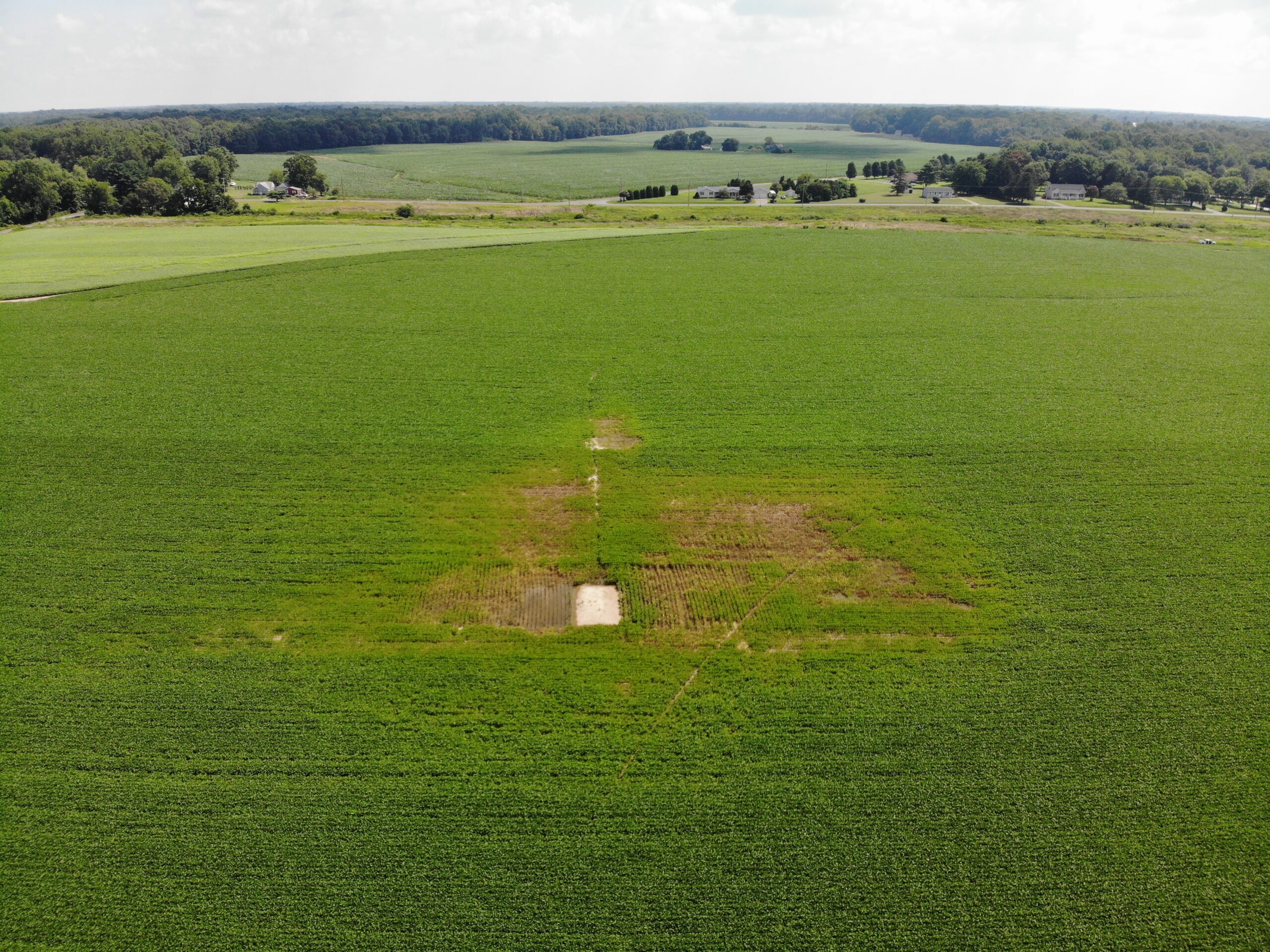
Chesapeake Bay Manureshed Webinar
The Delmarva Land and Litter Collaborative hosted a February 2022 webinar on the latest research on poultry manure management in the Chesapeake Bay Watershed. Researchers presented on the economics and design of field-scale dry manure injectors, barriers faced by regional grain farmers that limit the efficient distribution and use of poultry litter, and efforts at the national scale to manage the sustainable use of manure using the manureshed framework.
Speakers included Dr. Shockley and Dr. McGrath from the University of Kentucky, Dr. Virk and Dr Porter from the University of Georgia, Dr. Shober and Dr. Palm-Forester from the University of Delaware and Dr. Spiegal and Dr. Kleinman from USDA-ARS.
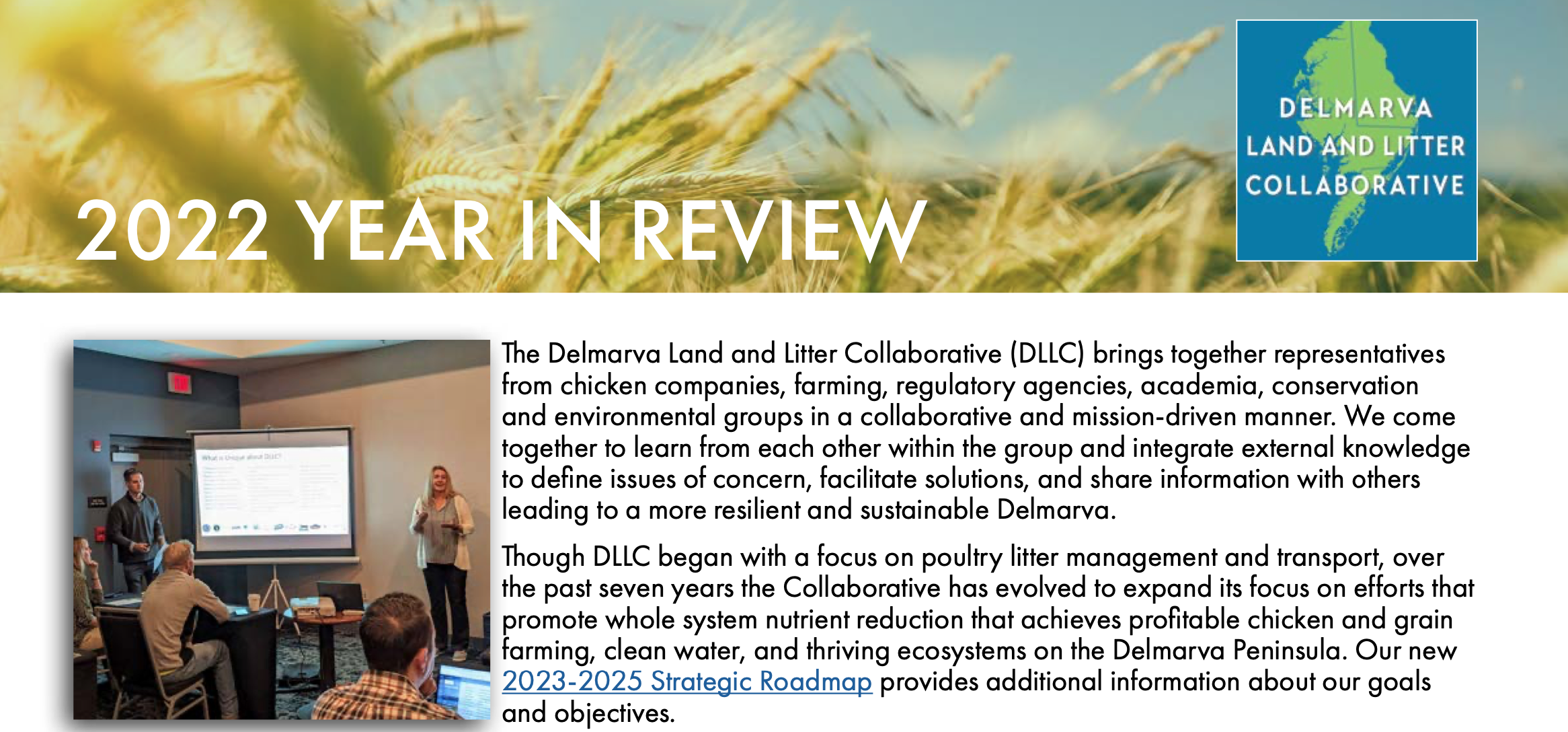
DLLC 2022 Year In Review
Read our 2022 Year in Review for a summary of what we accomplished and what’s ahead in 2023. In 2023, we will expand our communication efforts, reach out to meet with leadership in Maryland, Virginia, and Delaware to discuss priorities, and rotate our meetings around Delmarva so that it is easier for stakeholders to attend. We look forward to meeting you all!
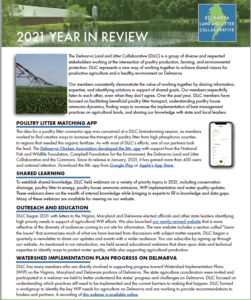
DLLC 2021 Year In Review
DLLC members spent much of 2021 hearing from and talking to scientists and other experts on ways to make food production even more sustainable on Delmarva. We have learned a great deal based on the data and scientific expertise. Read our 2021 Year in Review for a summary of what we accomplished and what’s ahead in 2022.
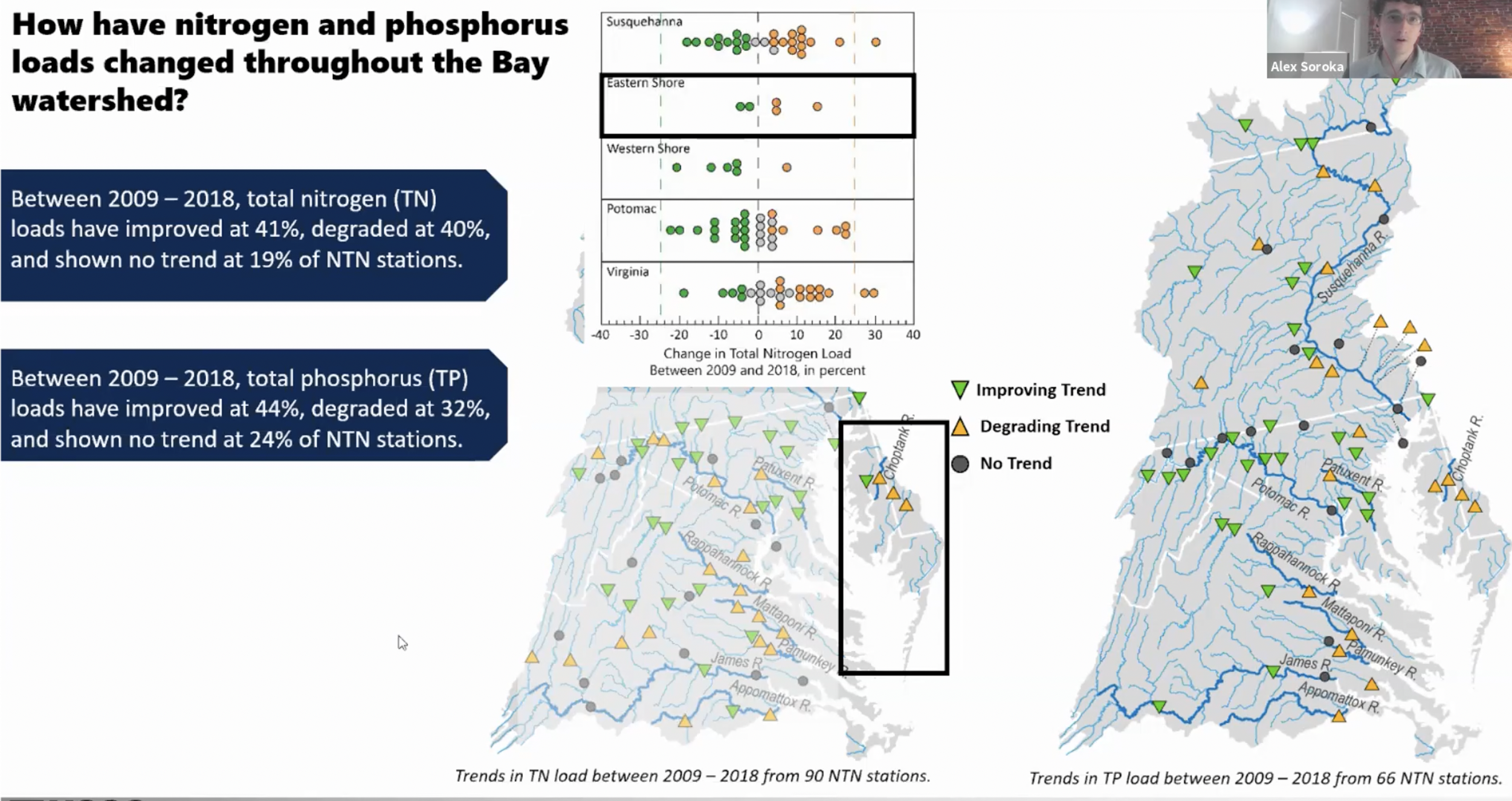
DLLC Webinar on Water Quality and Watershed Implementation Progress on Delmarva, October 2021
On October 15, 2020, DLLC hosted a webinar with scientists, watershed managers, agricultural producers and extension agents, and other decision makers to address the following primary objectives.
- Identify the trends for nutrients in streams and in groundwater on Delmarva, and factors affecting those trends in agricultural production (crop yield, litter concentrations of nutrients, advancements in agricultural technology, etc.).
- Identify the Delmarva agricultural contribution to the Chesapeake Bay relative to all other agriculture in the Bay watershed and understand how CBP accounts for poultry nutrient load vs. chemical fertilizer.
- Learn how Delmarva agriculture is doing on reaching the TMDL goals vs. other areas.
A recording of this three-hour webinar is available through the link below.
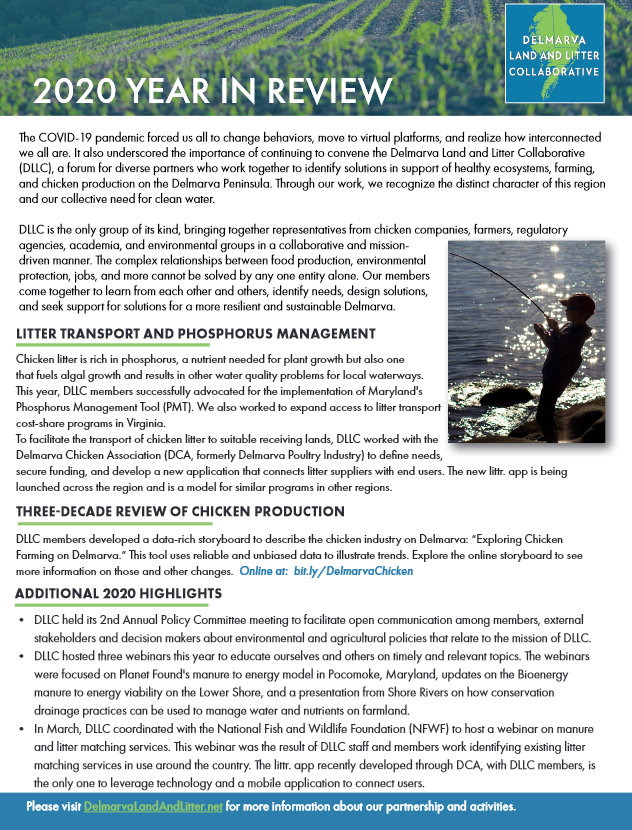
DLLC 2020 Year In Review
The COVID-19 pandemic forced us all to change behaviors, move to virtual platforms, and realize how interconnected we all are. It also underscored the importance of continuing to convene the Delmarva Land and Litter Collaborative (DLLC), a forum for diverse partners who work together to identify solutions in support of healthy ecosystems, farming, and chicken production on the Delmarva Peninsula. Through our work, we recognize the distinct character of this region and our collective need for clean water.
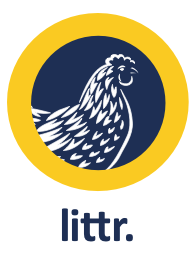
Litter Matching Service
The DLLC Policy Workgroup met in December, 2019 and discussed the potential delay of the Maryland PMT. During that meeting, the group determined that DLLC had enough knowledge to support the full implementation of the PMT and make tangible recommendations to MDA. A month later, the workgroup developed the DLLC PMT Recommendations to MDA. During that meeting, DLLC identified the need for a litter matching service to connect growers with haulers and producers and determined that DLLC partners were in a great position to obtain NFWF funding and develop the application for the Delmarva region. Their research led to the NFWF Project Spotlight:Manure/Litter Matching Services webinar (facilitated by DLLC). DLLC members worked closely with Delmarva Chicken Association to write the NFWF proposal. To be prepared with an app design when the NFWF funding became available, The Campbell Foundation provided funding for the stakeholder research and app design.
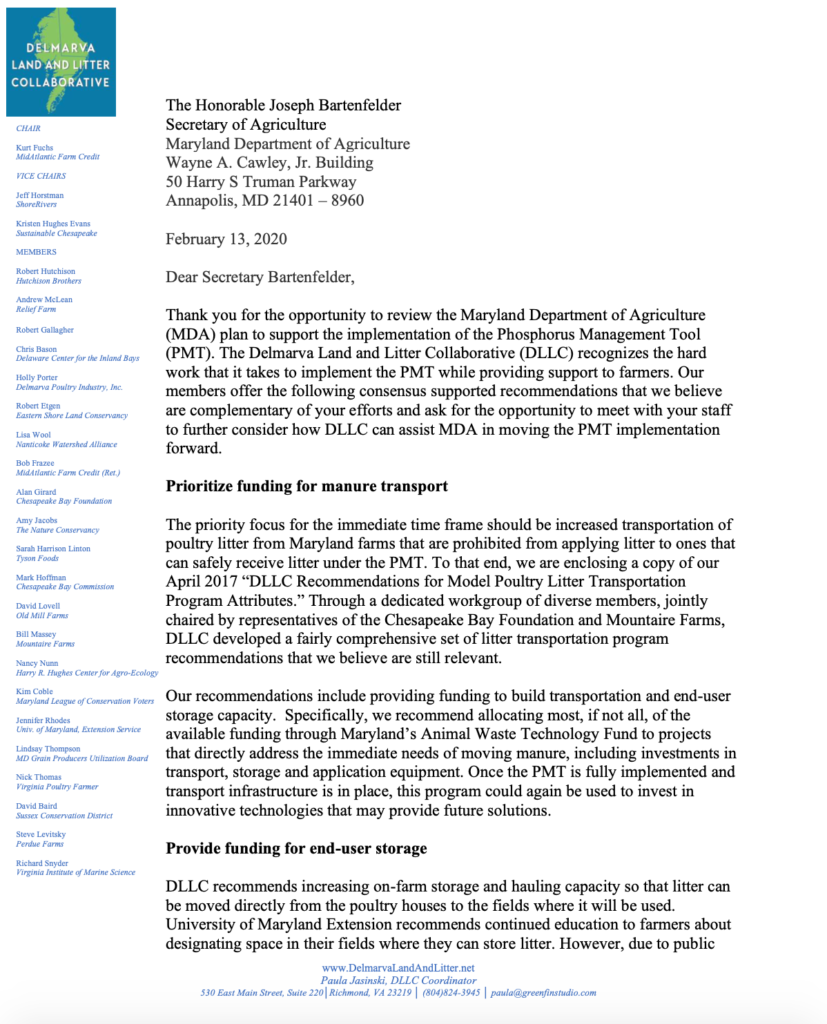
DLLC 2020 PMT Recommendations to MDA
DLLC recognizes the hard work that it takes to implement the Maryland PMT while providing support to farmers. Our members offered the following five consensus supported recommendations in 2020 that we believe are complementary of MDA’s efforts. One recommendation was to ask MDA to support the development of a private online litter marketplace. DLLC and its partners are in a unique position to develop and manage a private, online regional litter market service for growers, haulers, and receivers. The outcome of this concept was the littr. app described above.
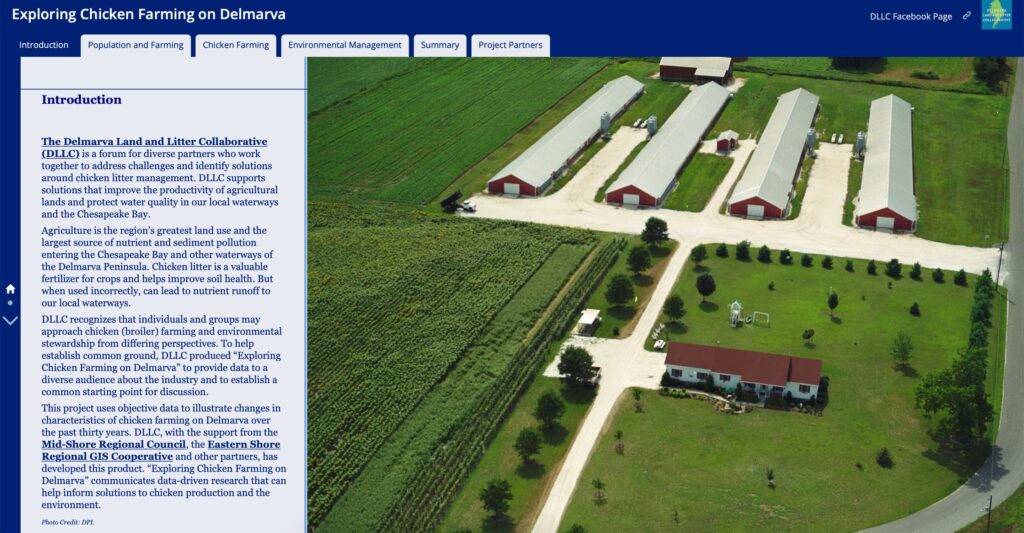
Exploring Chicken Farming on Delmarva storyboard
Exploring Chicken Farming on Delmarva was a DLLC effort to gather data that all could agree on to describe farming on Delmarva between 1985 and 2017. Data processing and mapping was conducted by Eastern Shore Regional GIS Cooperative with intense participation by a workgroup of DLLC members. The storyboard was not released until DLLC had 100% support from each member.
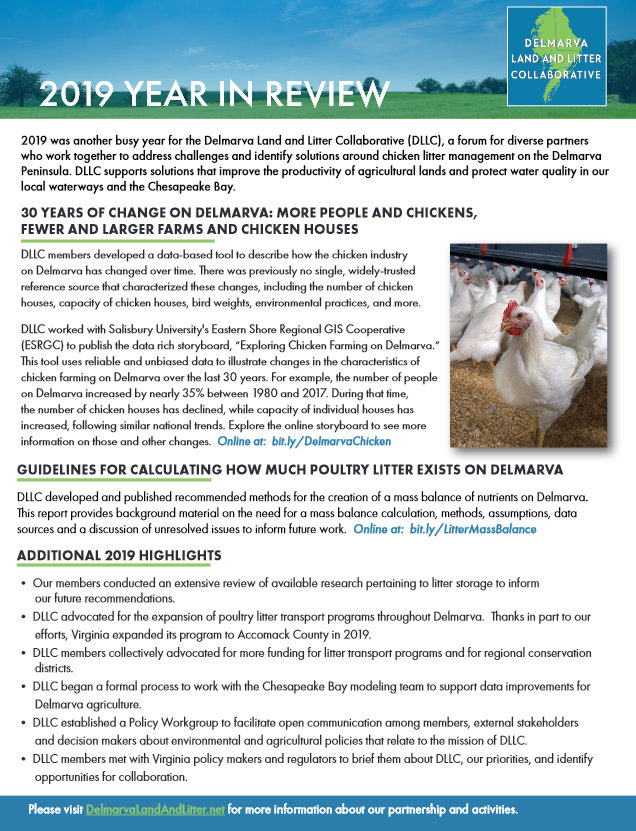
DLLC 2019 Year In Review
2019 was another busy year for the Delmarva Land and Litter Collaborative (DLLC), a forum for diverse partners who work together to address challenges and identify solutions around chicken litter management on the Delmarva Peninsula. DLLC supports solutions that improve the productivity of agricultural lands and protect water quality in our local waterways and the Chesapeake Bay.
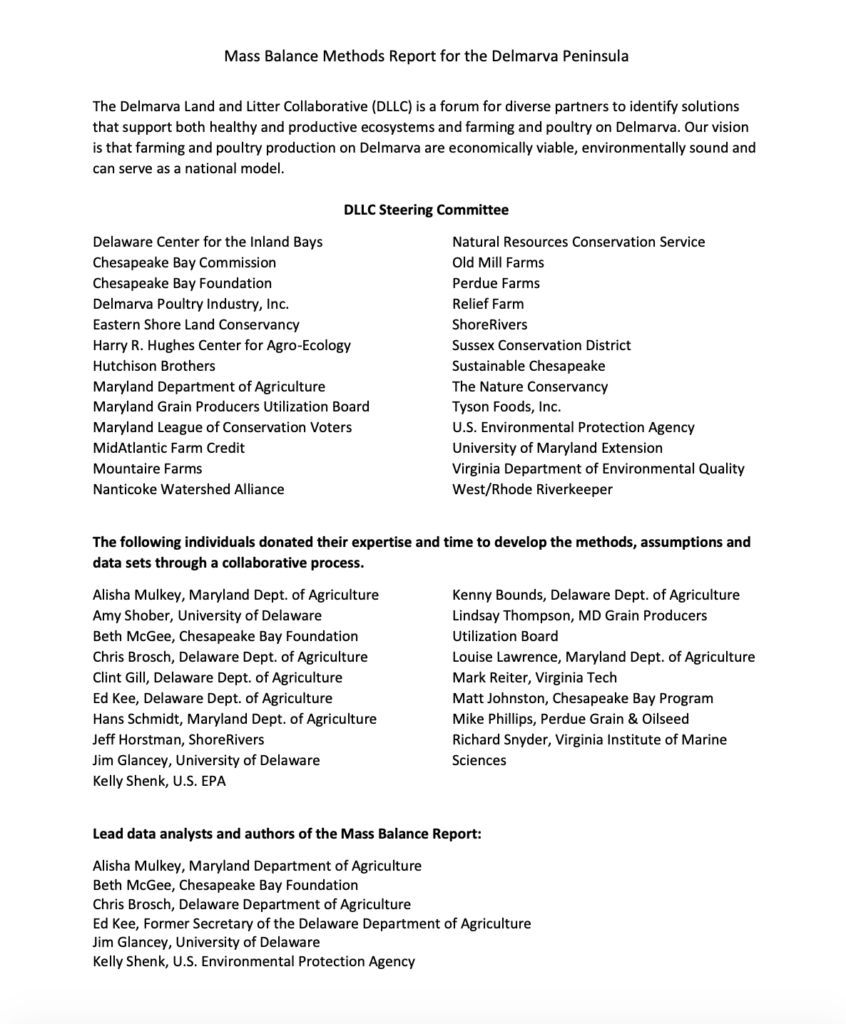
Mass Balance Methods for Delmarva
The study was conducted through a collaborative process where researchers and stakeholders worked together to develop the methods, decide on assumptions, review the data, and write the report. The workgroup of seventeen people, representing environmental and agriculture interests, was led by three co-chairs also representing both interests. The data analysis team was composed of members of the Maryland Department of Agriculture, Delaware Department of Agriculture and the University of Delaware. The DLLC decided in advance to only release the results of this study if the full DLLC Steering Committee could reach a consensus in support of the final product.Ultimately, the workgroup could not find consensus on three of the assumptions and the DLLC Steering Committee made the decision to not release a report. In lieu of a final report with results and data this report provides the background material, methods, assumptions, data sources and a brief discussion of the unresolved issues.
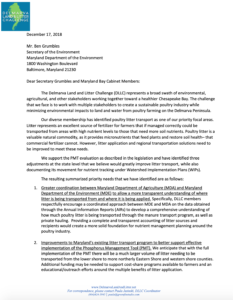
Letter to the Maryland Bay Cabinet 2018
This letter was sent by DLLC members in 2018 in support of more transparency and communication between MDA and MDE to better understand where litter was being transported and applied, to fund staffing for the Maryland Soil Conservation Districts and to improve the transport program.
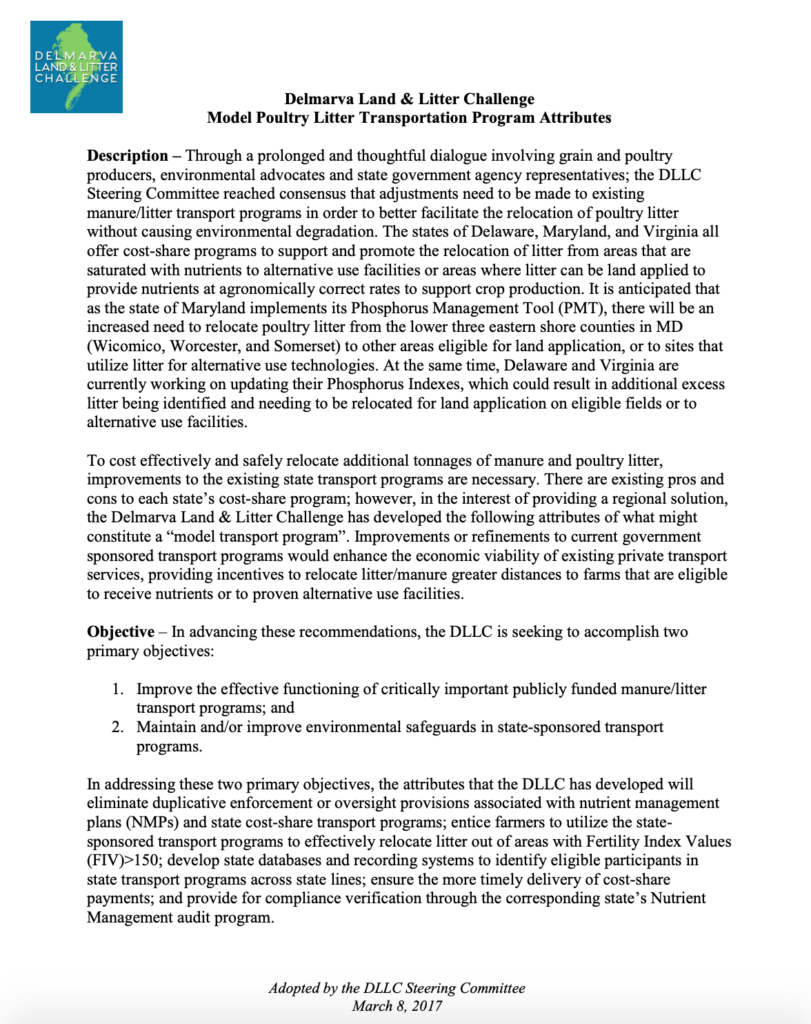
DLLC Recommendations for Model Poultry Litter Transportation Program Attributes, released April 2017
Through a prolonged and thoughtful dialogue involving grain and poultry producers, environmental advocates and state government agency representatives; the DLLC Steering Committee reached consensus that adjustments needed to be made to existing manure/litter transport programs in order to better facilitate the relocation of poultry litter without causing environmental degradation. Many of these recommendations are still relevant five years later.
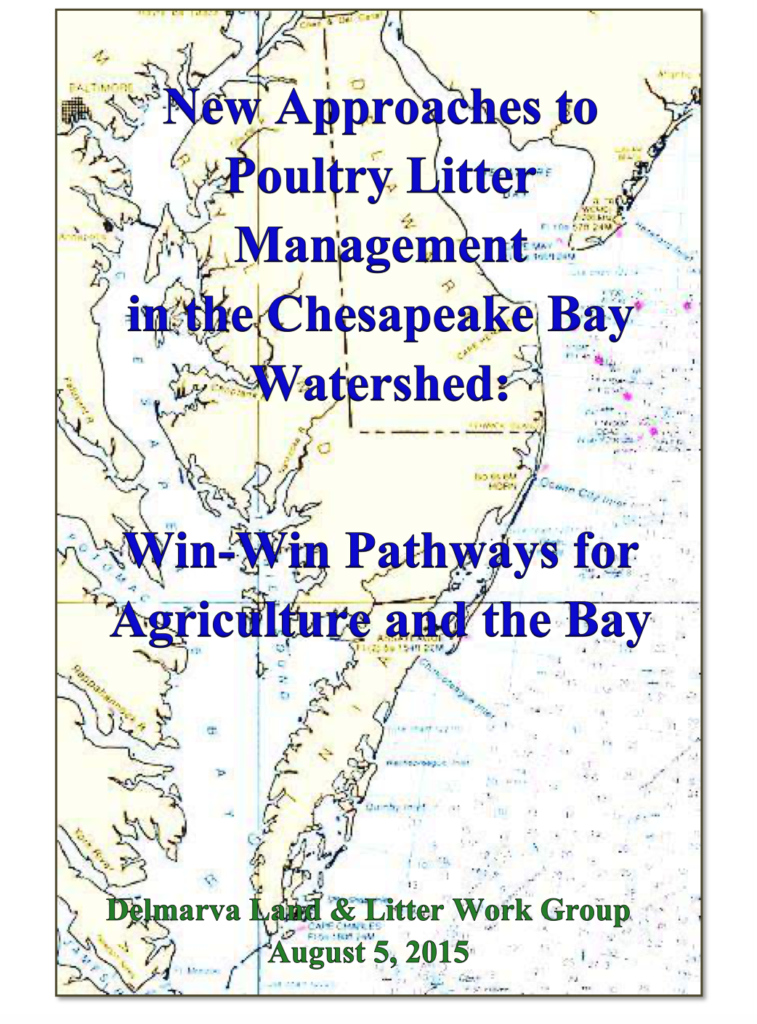
New Approaches to Poultry Litter Management in the Chesapeake Bay Watershed: Win-Win Pathways for Agriculture and the Bay (DLLC 2015 Report)
Through the Delmarva Land and Litter Project, a “kitchen cabinet” Work Group composed of a diverse cross section of grain growers, poultry producers and integrators, academic experts, extension agents, along with conservation and business partners, came together to assess progress in managing nutrient pollution associated with the storage, transport and land application of poultry litter on the Delmarva Peninsula. One of the recommendations of this group was to form a diverse, collaborative stakeholder group, which became DLLC.
